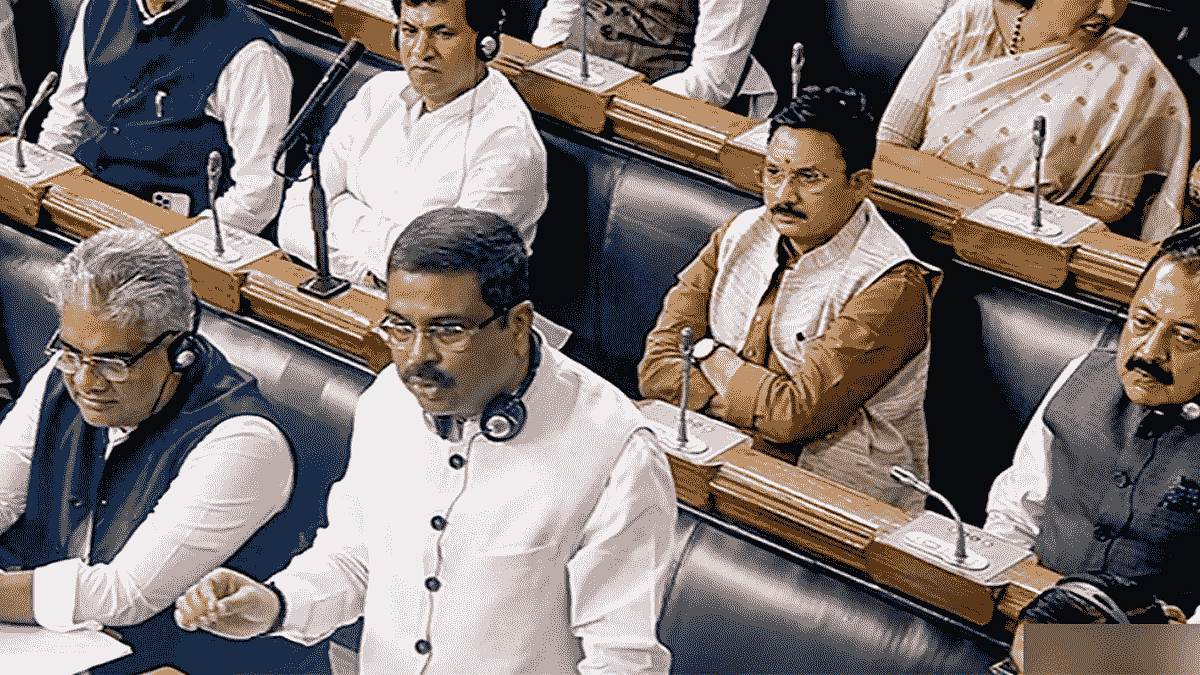New Delhi: There has been a 61.3 percent increase in the number of women in permanent positions in India’s higher educational institutions between 2016-17 and 2020-21, Union Education Minister Dharmendra Pradhan told Lok Sabha during the ongoing monsoon session Monday.
Pradhan, who was responding to a question asked by Sanjeev Kumar, a member of the YSR Congress and an MP from Kurnool, Andhra Pradesh, said that the number of female academics has gone up to 84,226 in 2020-21 from 52,216 in 2016-17.
“As per the All India Survey on Higher Education (AISHE) 2020-21, 84,226 females and 1,40,221 males, are reported in permanent academic positions (includes professor & equivalent, reader & associate, lecturer/assistant professor, demonstrator/tutor) in higher education institutions in the country. Of these, 3,008 females and 7,173 males are reported in permanent academic positions in the institutes of eminence,” Pradhan said in a written reply.
Started in 2010 by the Ministry of Education — then called the Ministry for Human Resource Development — AISHE is an annual survey that collects data on several parameters such as teachers, student enrollment, programmes, examination results, education finance, and infrastructure, according to the department of higher education website. Information collected through the survey is often useful in making policy decisions.
The last AISHE survey was conducted in 2020-21, when a total of 1,113 universities, 43,796 colleges and 11,296 standalone institutions were registered.
Also Read: Menial chores to sexual harassment—PhD scholars trapped in toxic relationship with guides
More female PhD candidates
According to the data Pradhan provided in Lok Sabha, the ratio of women to men in permanent academic positions has increased to 60 in 2020-21 from 53 in 2016-17.
The data also shows a 60 percent rise in the number of female doctoral candidates in the corresponding period — according to Pradhan, the number of female PhD candidates has increased to 95,088 in 2020-21 from 59,242 in 2016-17.
“This would provide more opportunities for women for academic positions in higher education,” Pradhan said in the written response.
The ministry credited the overall increase of female participation in higher education to the University Grants Commission’s various initiatives, such as a two-year relaxation and maternity leave of 240 days for female PhD students, among other things.
“In addition to this, several schemes and fellowships like the Savitribai Jyotirao Phule Fellowship for Single Girl Child, P.G. Indira Gandhi Scholarship for Single Girl Child and the Pragati Scholarship Scheme have also been put in place to encourage female participation in academia,” the ministry said.
(Edited by Uttara Ramaswamy)
Also Read: Indian PhDs, professors are paying to publish in real-sounding, fake journals. It’s a racket

